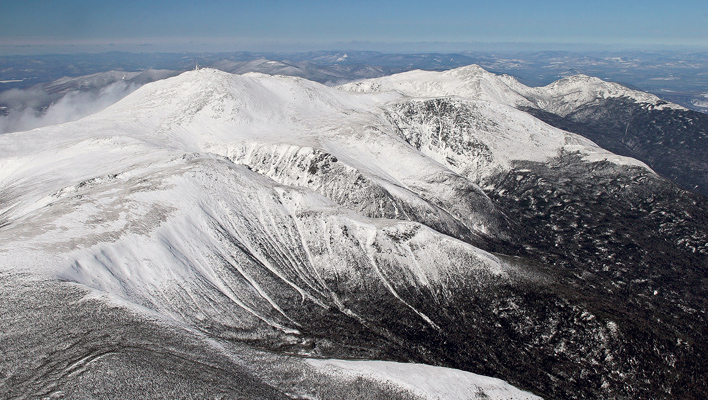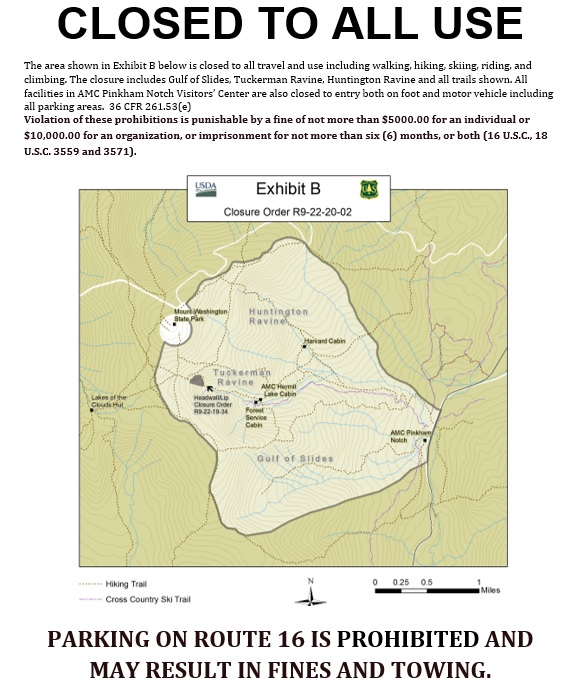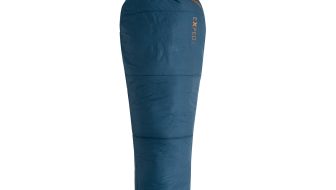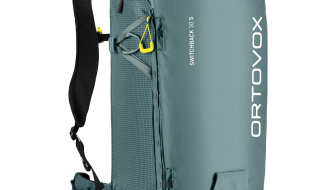The U.S. Forest Service has officially closed all Forest Service land within the Cutler River Drainage of New Hampshire’s Presidential Range. This closure affects the entirety of the classic spring-skiing terrain of Tuckerman Ravine and Hillman’s Highway, as well as Huntington Ravine and Gulf of Slides. The unprecedented action expands on Monday’s closure of the Headwall section of the Tuckerman Ravine Trail and was enacted in response to safety concerns related to the COVID-19 pandemic.
“The season ends on the east side of the range with a closure order in effect for the east side of Mount Washington, including Gulf of Slides, Tuckerman Ravine and Huntington Ravine and all of the trails in between,” Frank Carus, lead snow ranger and director of the Mt. Washington Avalanche Center wrote in a statement. “In addition to the annual closure that occurs to the section of the Tuckerman Ravine Trail, a much larger closure is in effect. Pinkham Notch parking lot will be closed to the public, with both the closure orders enforced with fines and even possible jail time.”

On Monday, the Mt. Washington Avalanche Center (MWAC) issued its final avalanche bulletin of the season, a decision made in order to reduce exposure of U.S. Forest Service employees, volunteers and mountain visitors to COVID-19 and in accordance with the New Hampshire governor’s March 27 Stay at Home order to limit non-essential travel. Spring weekends in Tuckerman Ravine often draw thousands of visitors, and according to the MWAC, nearly 400 individuals visited the Ravine on Saturday, in spite of the avalanche center’s urging of skiers and riders to stay home.
“The USFS and MWAC understand and support the need for outdoor recreation, fresh air and exercise but interpret the measures to limit the spread should exclude riskier activities, particularly at a highly popular venue which attracts visitors from around the region,” the bulletin read. “Furthermore, high risk activities such as skiing and climbing in complex avalanche terrain with extreme weather conditions create an unnecessary risk of injury or a need for search and rescue intervention.”
In addition to publishing its final avalanche bulletin on Monday, the MWAC implemented its annual seasonal closure of the Tuckerman Ravine Trail between Tuckerman Ravine’s Lunch Rocks and the top of the Headwall, closing the Headwall, the Lip and Sluice to skiing and riding. This closure is traditionally instituted each spring to protect public and rescuers from hazards associated with the waterfall and crevasses that emerge as the snow of Tuckerman’s bowl melts out. Violating the closure, the bulletin noted, is a misdemeanor offence. All facilities including bathrooms, camping and shelters were also closed on Monday.

The updated closure (Editors’ Note: This is NOT an April Fool’s Day joke.) extends across all popular ski terrain on Mt. Washington’s eastern flank, including in Gulf of Slides, Tuckerman Ravine and Huntington Ravine and around Hillman’s Highway.
On Saturday, on the most recent Ski The Whites MWAC Outreach podcast, Carus suggested that such a complete closure would likely occur by the end of the week. “These riskier activities, or activities that take you traveling, create more of a problem, and the search and rescue community is really clamoring for some kind of action,” Carus said. “At the end of the day, skiing—I think by most people’s measure—is not really an essential activity.”
Elsewhere in the U.S., certain public lands have closed while others have remained open, including more than 300 national parks, for which the Interior Department waived entrance fees on March 18. Yellowstone and Grand Teton national parks announced their closures on March 24, according to the Jackson Hole News and Guide, at the request of gateway communities and Montana Governor Steve Bullock and Wyoming Governor Mark Gordon; Montana’s Glacier National Park closed on Friday, March 27, the AP reported; and U.S. Forest Service day-use sites throughout Washington and Oregon closed on April 1, reported KLCC, Oregon’s NPR affiliate. At least seven National Park Service employees have tested positive for COVID-19, the Washington Post reported Wednesday, and, in a public letter dated Tuesday, March 31, the Coalition to Protect America’s National Parks, a non-profit of retired, former and current Park Service employees, encouraged Interior Secretary David Bernhardt close parks nationwide.
Meanwhile on New Hampshire’s Mt. Washington, the Cutler River Drainage closure is unprecedented in its scope, but as Frank Carus said in the MWAC Outreach podcast, such a decision was not made easily.
“Please do your part and stay near home, hike in the woods, run a new route, or take up that project you’ve been putting off,” Carus wrote in his April 1 statement. “The mountains have been around for a long time and will be here when life returns to normal. Thanks again for your cooperation as we navigate these rough waters.”
—
While it’s not the same as a spring day spent in Tuckerman Ravine, Backcountry’s Boundless Issue (#133) features a 24-page deep dive into the history of skiing on Mt. Washington—from the first ascent of the Rock Pile to the story of its infamous weather to the legendary races of the 1930s to today. Purchase a copy of the issue now at shop.holpublications.com (with free U.S. shipping) or download the digital version for just $3.50.










Related posts: